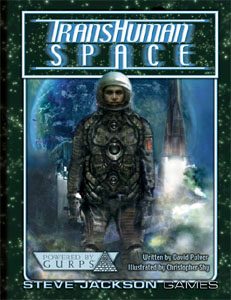The problem with GURPS-style advantage/disadvantage character creation systems is that the actual impact of a given advantage or disadvantage is highly dependent on the circumstances of actual play: “Immune to psionic attacks” is totally amazing if your campaign is The War Against the Illithids; it’s completely wasted if your character never encounters a psion. Similarly, “Horrifically Claustrophobic” is a crippling disadvantage in a megadungeon campaign; it’s basically a non-factor if you’re playing Lawrence of Arabia.
So in order for these systems to work, the advantages and disadvantages need to be made equally relevant in actual play.
IME, however, there are two typical actual play dynamics in RPGs:
First, the players are given a free rein. Players will naturally seek to play to their advantages and play away from their disadvantages. This isn’t even really abusive play: It’s just a logical way of interacting with the world. (If I had no legs, I wouldn’t spend a lot of time buying ladders.)
Second, the GM is railroading the players. You might initially expect this to reverse the dynamic, but it typically doesn’t because (again, IME) most railroading GMs are more focused on achieving a predetermined goal: Their focus is an internal one. It might inadvertently force players into confronting their disadvantages, but often will not. (While the players will still be able to tactically exploit their advantages.)
In order for an advantage/disadvantage system to really work, IMO, you need a GM who’s willing to advocate as strongly for the inclusion of a PC’s disadvantage as the player is to advocate for the inclusion of the PC’s advantage.
The GMs most willing to do this are (in terms of the Threefold) dramatists and gamists. Simulationists are much less likely to put their thumb on the scale and “force” the inclusion of disadvantages.
This becomes a particular problem for GURPS because most the features in that system are heavily focused on supporting simulationists: So the people most likely to be running GURPS are the ones least likely to adopt the GMing techniques necessary to keep the advantage/disadvantage system balanced.



 William Boulle first ran for national office in 1956 as Adlai Stevenson’s running mate. Although they were handily defeated by the Eisenhower-Nixon ticket, Boulle distinguished himself as a strong campaigner – particularly in the early primary states. Boulle would run unsuccessfully in 1960 against John F. Kenendy and then retire from politics in 1964 when his senatorial term ran out. In 1968 Boulle emerged from retirement to once again attempt to capture the democratic nomination. His domestic and anti-war policies caught the imagination of the people and he proved immensely popular at the ballot box. Tragically, however, Boulle would be assassinated immediately after declaring victory in the California primary by Sirhan Sirhan. Bobby Kennedy would go on to win the nomination and, then, the general election against Richard Nixon.
William Boulle first ran for national office in 1956 as Adlai Stevenson’s running mate. Although they were handily defeated by the Eisenhower-Nixon ticket, Boulle distinguished himself as a strong campaigner – particularly in the early primary states. Boulle would run unsuccessfully in 1960 against John F. Kenendy and then retire from politics in 1964 when his senatorial term ran out. In 1968 Boulle emerged from retirement to once again attempt to capture the democratic nomination. His domestic and anti-war policies caught the imagination of the people and he proved immensely popular at the ballot box. Tragically, however, Boulle would be assassinated immediately after declaring victory in the California primary by Sirhan Sirhan. Bobby Kennedy would go on to win the nomination and, then, the general election against Richard Nixon.










